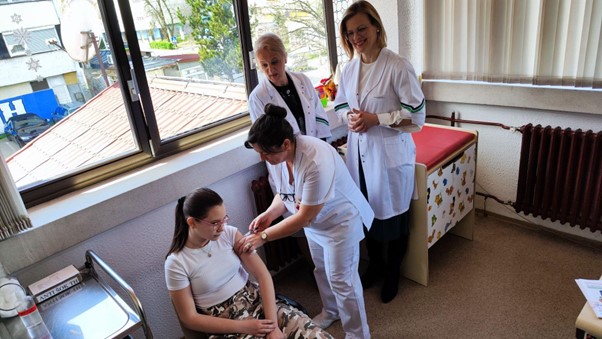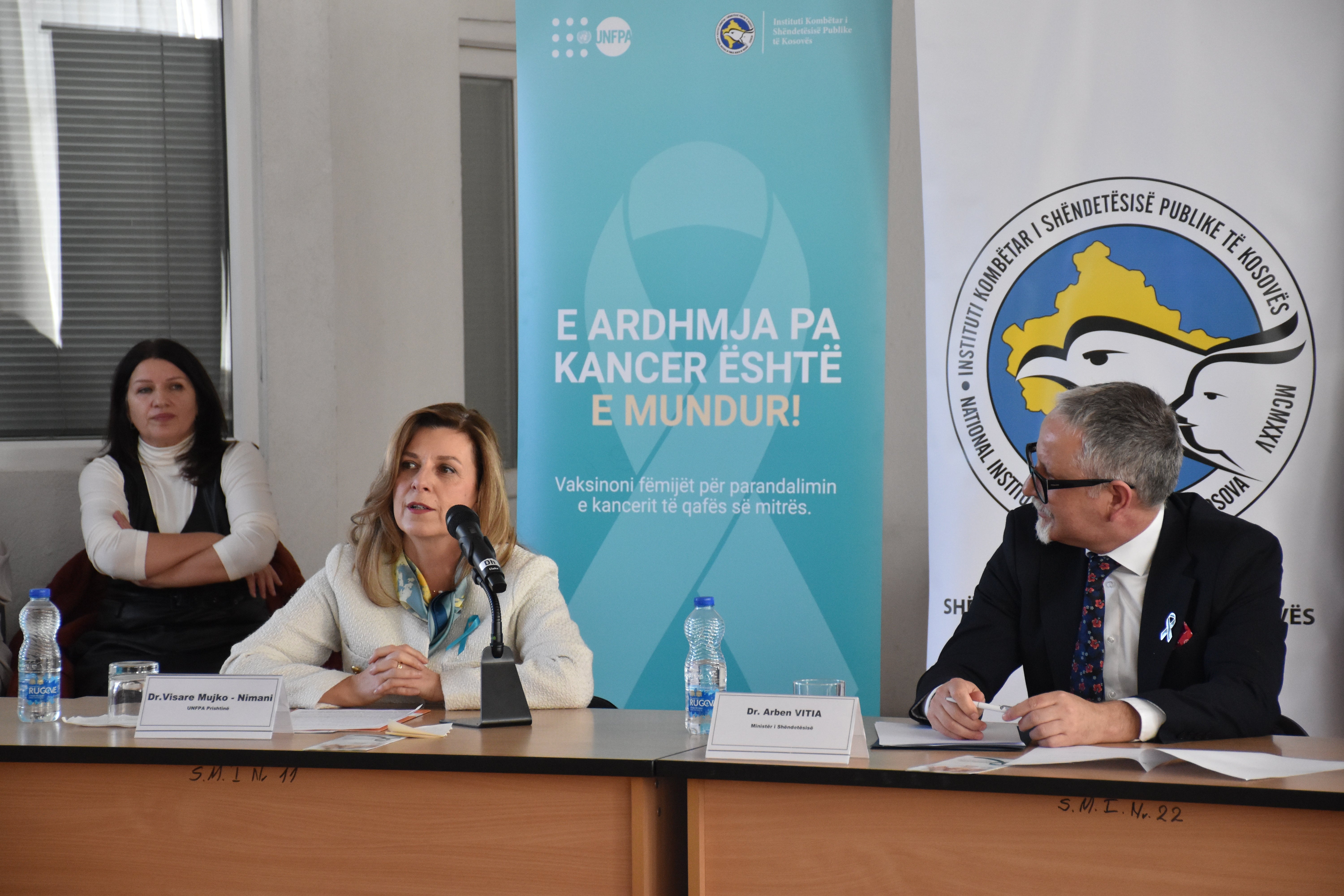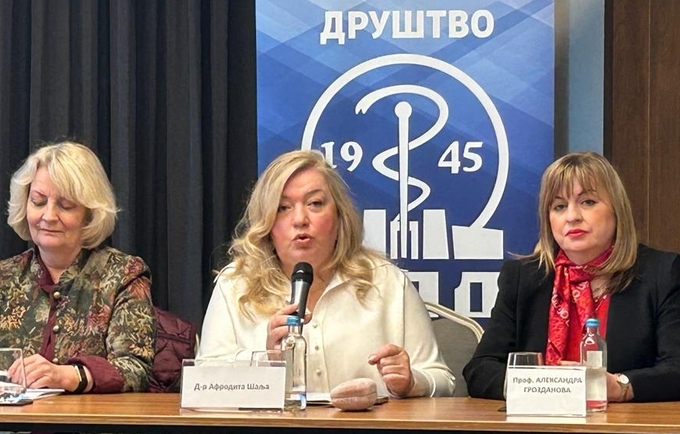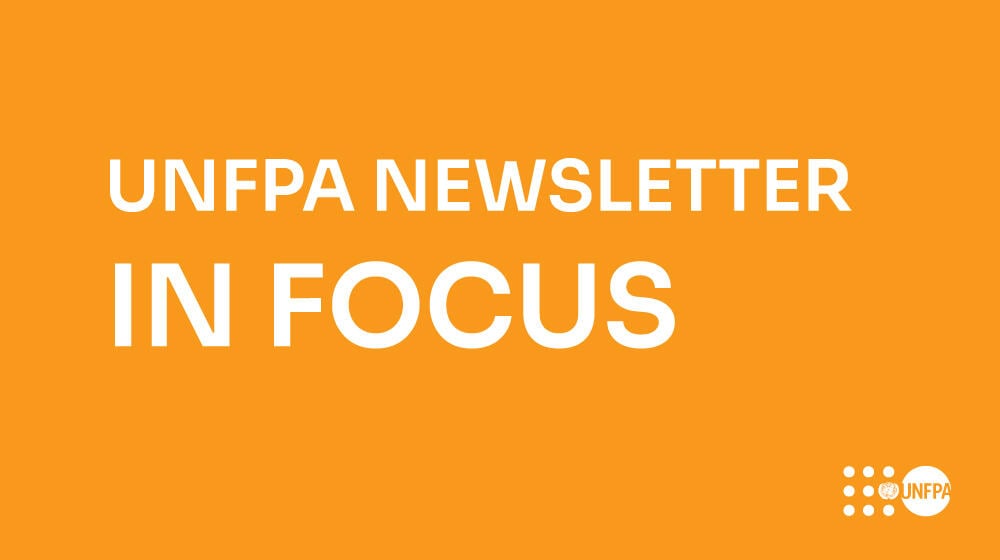Joining forces with partners to mark Cervical Cancer Prevention Week, the UNFPA Western Balkans cluster teams and a wide range of stakeholders conducted numerous activities that advocate, share information and raise awareness of the importance of screening programs, and tests as part of health service delivery packages, while also promoting the necessity of life-saving HPV vaccines among girls of young age groups ranging from 10-20 years old.
In Albania, the Ministry of Health and Social Protection and the Institute of Public Health with the support of UNFPA, through dedicated campaigns in schools and on various traditional and social media channels, continue to raise awareness among women to go through screening and regular pap tests, as well as among public at large, parents, teachers and families to have young girls 13 years old up to 20 years old take the HPV vaccine.

)
In Bosnia and Herzegovina, some 300 women and girls are diagnosed with cervical cancer every year. Sladjana Siljak, from Banja Luka, in north-western Bosnia and Herzegovina, is a mother to two daughters. She made sure her daughters got vaccinated against the human papillomavirus (HPV) that causes cervical cancer and contributed to spreading the word about the benefits of vaccination.
“I used the opportunity to get my children interested in talking about this with their peers to encourage them to protect themselves and ensure a healthier future.”
)
Since 2016, over 15,000 women in Kosovo have undergone PAP tests, with 4.2% testing positive for abnormal cells in 2023. Primary Health Care in several municipalities, along with the National Institute for Public Health and other partners, facilitated this effort. UNFPA Kosovo led Cervical Cancer Prevention Week, featuring roundtable discussions attended by key stakeholders, emphasizing collaboration in combating cervical cancer. Appreciation was extended to UNFPA and Action for Mothers and Children for their support.

Arbnesha Kelmendi Draga, a cervical cancer survivor from Kosovo, emphasizes the vital role of regular Pap tests for early detection. Collaborative efforts led by UNFPA and local partners have significantly improved access to screening and treatment. Ms. Kelmendi Draga urges women to prioritize regular check-ups, highlighting the importance of early detection in saving lives.
UNFPA with a media briefing with the representatives of professional associations, the National Immunization Committee, and United Nations representatives in the country, on the occasion of marking the cervical cancer prevention week, held every year from January 22 to 28.
“In North Macedonia, the incidence is somewhere along the lines of 20 new cases per 100,000 women, which is quite high compared to what we should strive towards - two to four new cases per 100,000 women," said the president of the Association of Radiology and Oncology, Dr. Violeta Klisarovska.

The European Cervical Cancer Prevention Week in Serbia, themed "Together against cervical cancer," saw collaboration between UNFPA Serbia, the Institute for Public Health "Dr. Milan Jovanović —Batut," and other key health bodies. Despite ongoing efforts, Serbia's cervical cancer rates remain high, with about 1100 new cases and 447 deaths annually. Prevention strategies, highlighted at a press conference, were highlighted during the week.

In addition to these traditional ways of marking, UNFPA Serbia also had a social media campaign this year to raise awareness about prevention and HPV vaccination. The campaign features the moving story of Violeta Ivković, a writer who survived cervical cancer and who today has no doubts about the HPV vaccination of her grandchildren.


